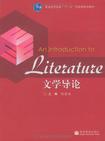文学导论
出版时间:2009-2 出版社:刘洊波 高等教育出版社 (2009-02出版) 作者:刘洊波 编 页数:261
Tag标签:无
前言
随着全球化进程的加速发展,文化全球化和经济全球化的深入推进,高等教育,特别是英语专业教育在新的历史转型期的文化交融层面越来越肩负着举足轻重的社会责任。因此,为了培养具有扎实的英语基本功、相关的专业知识和文化知识、较强的英语综合应用能力和创新思维的人才,为不断深入的大学英语教学改革培养和提供师资,而且立足于中国语境,用全球化的理念和视角进行教材设计,我们策划了“高等院校英语专业立体化系列教材”。实现这一具有时代意义的战略任务需要广大英语专业教师树立执着的敬业精神,制订科学的、高水平的、切合实际的英语专业教学大纲,编写出版能充分体现大纲要求的有关课程(必修和选修)的配套教材,以及开发为课堂教学和学生自主化学习服务的、与新型电子化教学仪器设备配套的教学软件系统。由高等教育出版社策划并陆续出版的“高等院校英语专业立体化系列教材”作为“普通高等教育‘十一五’国家级规划教材”,就是为实现英语专业教学改革这一历史任务服务的。为实现以上目的和任务,本系列教材注重以下方面:1.注重培养学生的跨文化交际能力和文化鉴赏与批判能力。在教材设计时体现“全球视野,中国视角”的理念。这就是说,本系列教材在保持各门课程的思想性和批判性的优良传统外,既向学生提供西方文化背景知识,也引导学生鉴赏和学习我国的优秀文化传统。要让学生在多元文化的背景下,熟悉掌握中外文化的共同点和差异。在这个基础上,培养学生的鉴别和比较能力,启发和诱导学生进行创新思维。2.科学安排,系统设计。经过多年来对教学模式改革的探讨,我国英语专业教学已总结出良性的教学规律,一般将4年的教学过程分为两个阶段,即:基础阶段(一年级和二年级)和高年级阶段(三年级和四年级)。按照此教学规律,本系列教材分为基础阶段教材和高年级阶段教材,同时悉心设计基础阶段和高年级阶段的衔接。基础阶段教材的主要任务是传授英语基础知识,对学生进行全面的、严格的基本技能训练,培养学生实际运用语言的能力、良好的学风和正确的学习方法,为进入高年级学习打下扎实的专业基础。高年级阶段教材的主要任务是在继续打好语言基础的同时,学习英语专业知识和相关专业知识,进一步扩大知识面,增强对文化差异的敏感性,提高综合运用英语进行交际的能力。同时,根据《高等学校英语专业英语教学大纲》的课程设置,本系列教材将课程分为英语专业技能课、英语专业知识课和相关专业知识课三种类型。全面培养学生的语言能力、思维能力、终生学习能力,拓宽学生的知识面,同时帮助学生树立正确的人生观和价值观。
内容概要
随着全球化进程的加速发展,文化全球化和经济全球化的深入推进,高等教育,特别是英语专业教育在新的历史转型期的文化交融层面越来越肩负着举足轻重的社会责任。因此,为了培养具有扎实的英语基本功、相关的专业知识和文化知识、较强的英语综合应用能力和创新思维的人才,为不断深入的大学英语教学改革培养和提供师资,而且立足于中国语境,用全球化的理念和视角进行教材设计,我们策划了“高等院校英语专业立体化系列教材”。 实现这一具有时代意义的战略任务需要广大英语专业教师树立执着的敬业精神,制订科学的、高水平的、切合实际的英语专业教学大纲,编写出版能充分体现大纲要求的有关课程(必修和选修)的配套教材,以及开发为课堂教学和学生自主化学习服务的、与新型电子化教学仪器设备配套的教学软件系统。由高等教育出版社策划并陆续出版的“高等院校英语专业立体化系列教材”作为“普通高等教育‘十一五’国家级规划教材”,就是为实现英语专业教学改革这一历史任务服务的。 本教材是文学导论规划教材,较系统地介绍了文学的基本概念、文学关注的主要内容;较详细地介绍了诗歌、小说、戏剧等主要文学体裁的形式与内容;文学体裁的介绍与文学欣赏紧密结合,学生先赏析作品,再进行理论升华。
书籍目录
Unit One: IntroductionWhat Is Literature? Why Should We Study Literature?Unit Two: Fiction (1)What Is Fiction?Elements of FictionUnit Three: Fiction (2)Thomas Hardy: The Return of the NativeUnit Four: Fiction (3)Charles Dickens: Hard TimesUnit Five: Fiction (4)Nathaniel Hawthorne: Young Goodman BrownUnit Six: Fiction (5)William Faulkner: A Rose for EmilyUnit Seven: Poetry (1)What Is Poetry?The Origin and Development of PoetryElements of PoetryUnit Eight: Poetry (2)William Shakespeare: Sonnet 18Ben Jonson: TO CeliaUnit Nine: Poetry (3)John Keats: On the Grasshopper and the Cricket; To AutumnEdgar Allan Poe: Annabel LeeUnit Ten: Poetry (4)Robert Frost: The Road Not Taken; Stopping by Woods on a Snowing EveningPercy Bysshe Shelley: Ode to the West WindUnit Eleven: Drama (1)What Is Drama?The Origin and Development of DramaElements of DramaUnit Twelve: Drama (2)William Shakespeare: HamletUnit Thirteen: Drama (3)Ben Jonson: Volpone the FoxUnit Fourteen: Drama (4)Arthur Miller: Death of a SalesmanUnit Fifteen: Drama (5)Tennessee Williams: The Glass MenagerieUnit Sixteen: Critical Approaches to Literature
章节摘录
插图:A plot in a work of fiction is the plan, design, arrangement and organization of interrelated events and characters in such a way as to induce curiosity and suspense in the reader. It is an intellectual formulation about the relations among the incidents and is, therefore, a guiding principle for the author and an ordering control for the reader.The discussion of plot began in Aristotle's Poetics. Aristotle considered plot as one of the six elements in tragedy, the others being characters, verbal expression, thought, visual adornment, and song-composition. It is to him the most important of these six elements. It is the "first principle" and "the soul of a tragedy". It is the governing principle of development and coherence to which other elements must be subordinated. Aristotle insisted that a plot should have a beginning, a middle and an end, and that its events should form a coherent whole.A complete plot usually comprises such phases as exposition, conflict, climax, and denouement."Exposition" provides the essential background information the reader needs to make sense of the situation in which the characters are placed and the actions take place. It usually introduces the characters and the conflicts, or at least the potential for conflict."Conflict" is the tension between characters, or the actual opposition of characters. It may be the confrontation of actions, ideas, desires, or wills. It is the basic opposition that builds the suspense and engages the reader's expectation."Climax" is the moment at which a crisis is reached and resolution achieved. It is the most dramatic and revealing moment, usually the turning point of the plot, direcdy precipitating its resolution.
编辑推荐
《文学导论》特色:较系统地介绍了文学的基本概念、文学关注的主要内容。较详细地介绍了诗歌、小说、戏剧等主要文学体裁的形式与内容。文学体裁的介绍与文学欣赏紧密结合,学生先赏析作品,再进行理论升华。
图书封面
图书标签Tags
无
评论、评分、阅读与下载
用户评论 (总计1条)
- 想买这本书,能不能把书的目录和一些其他信息写的详细些,如作者出版社等,谢谢
